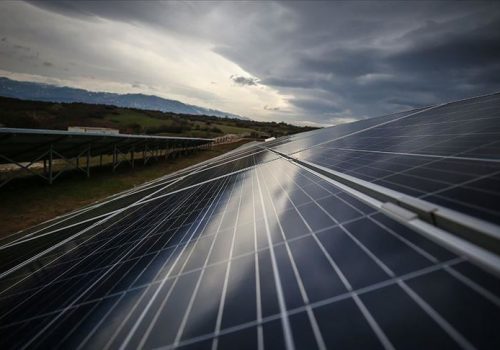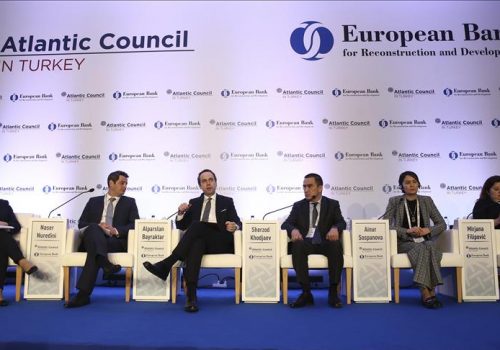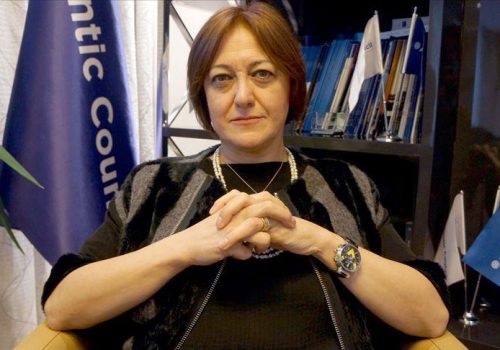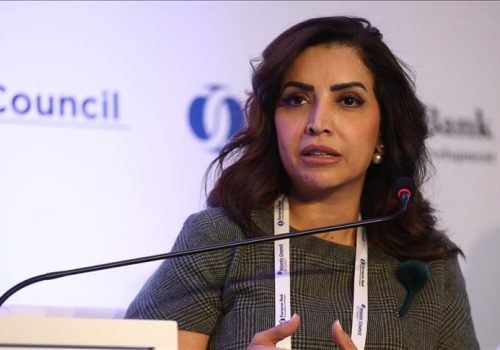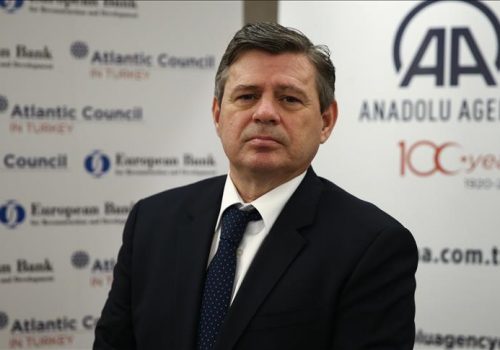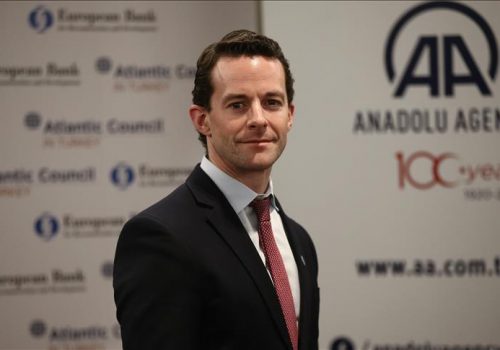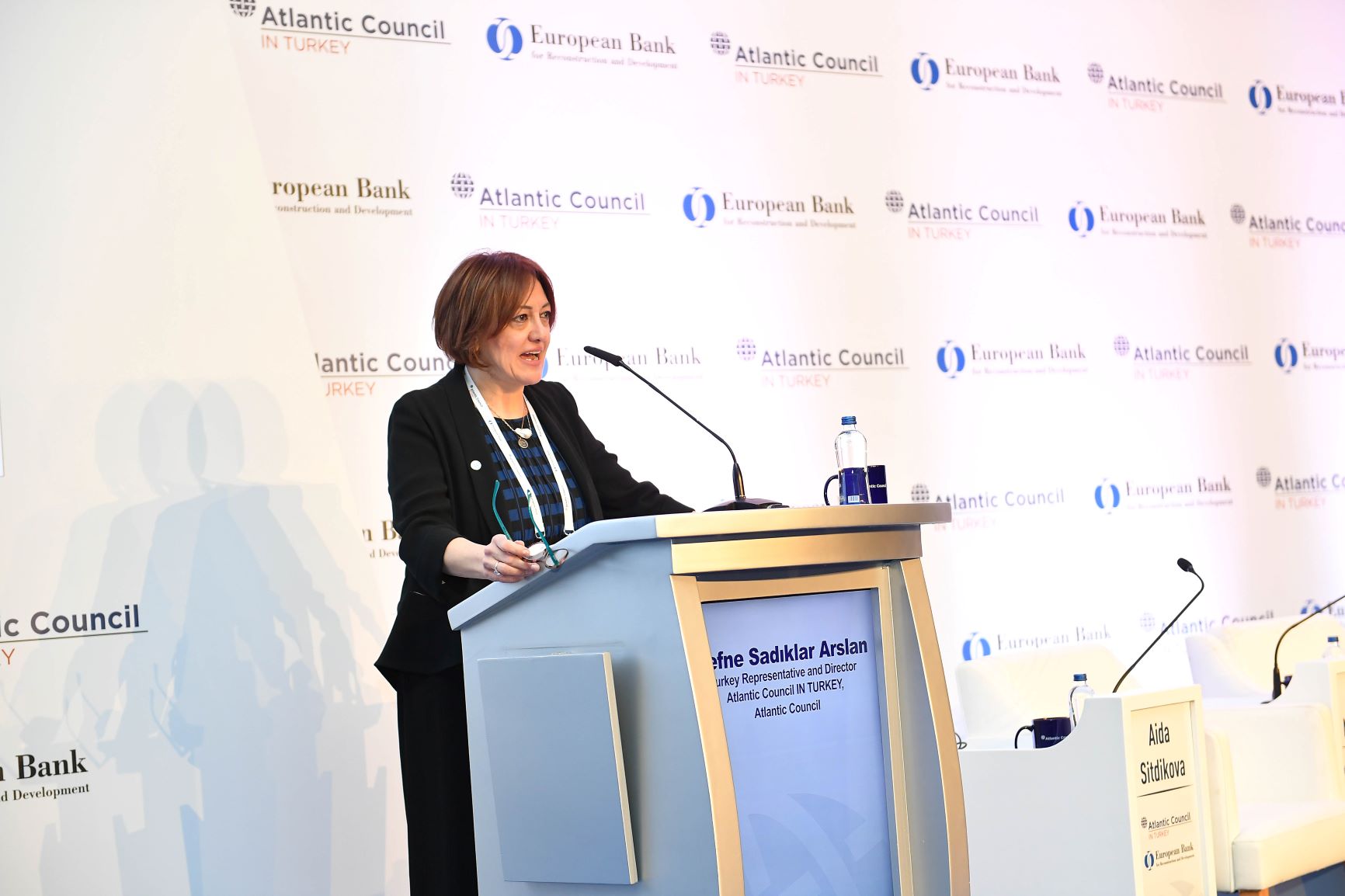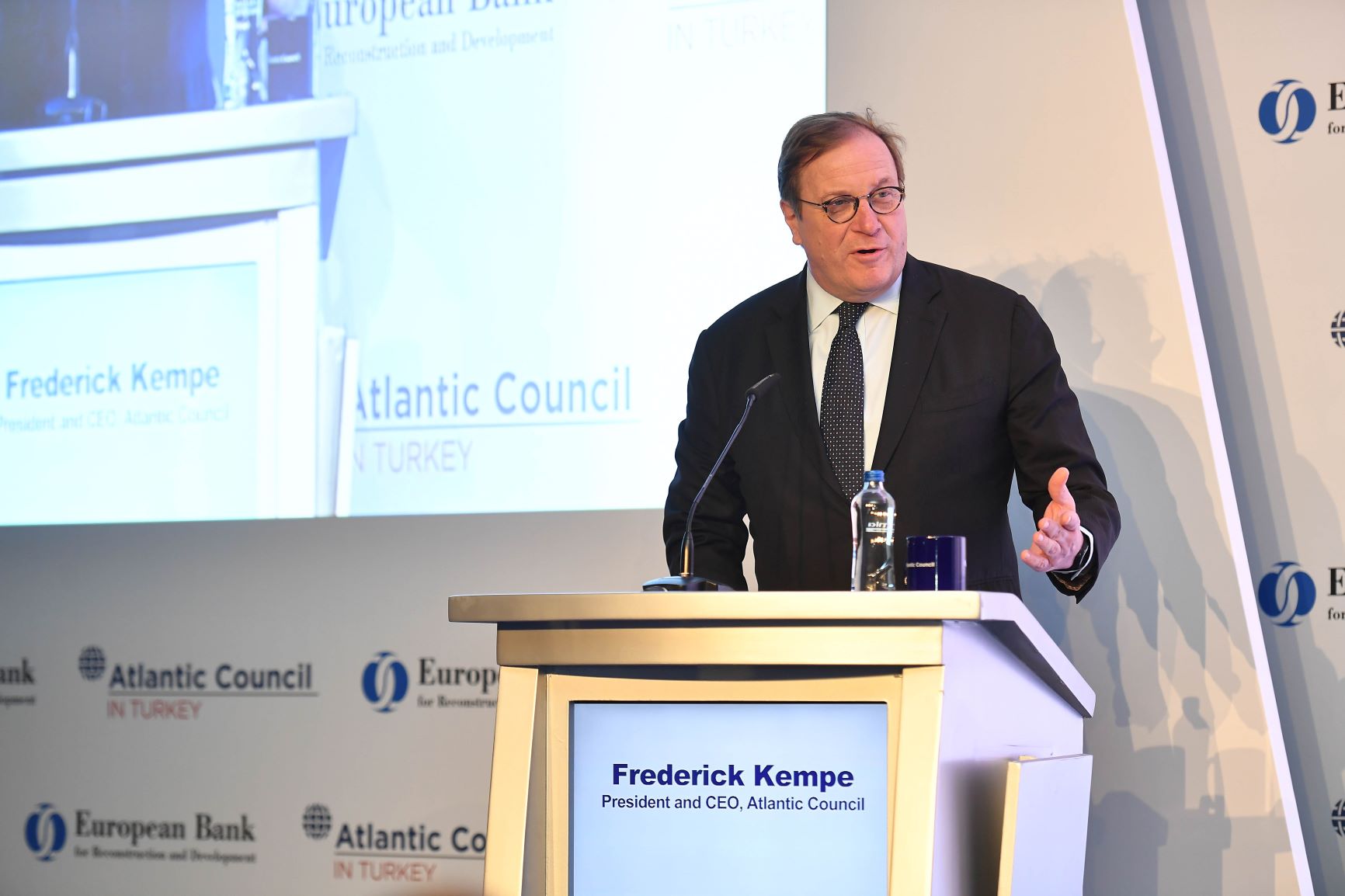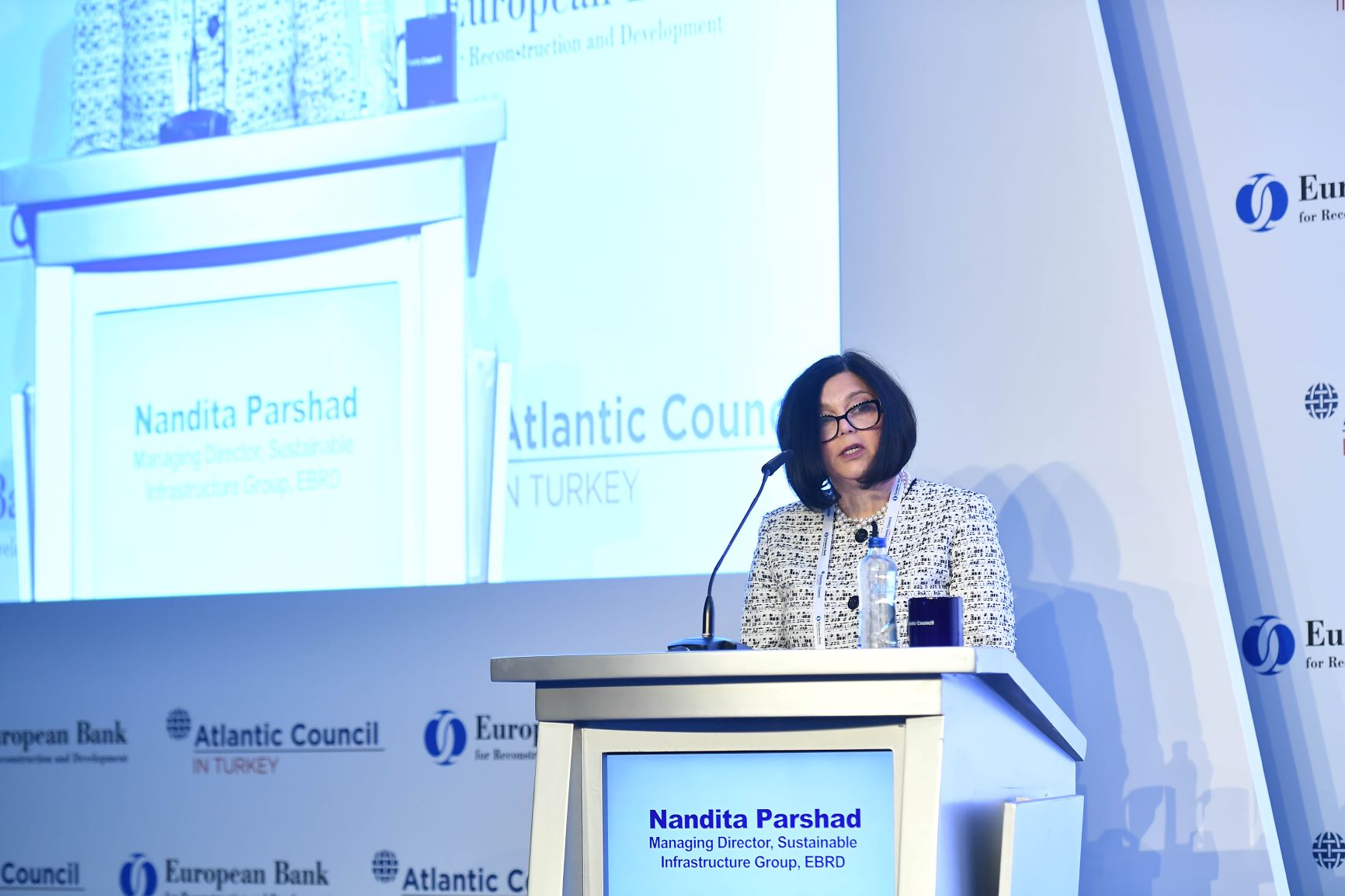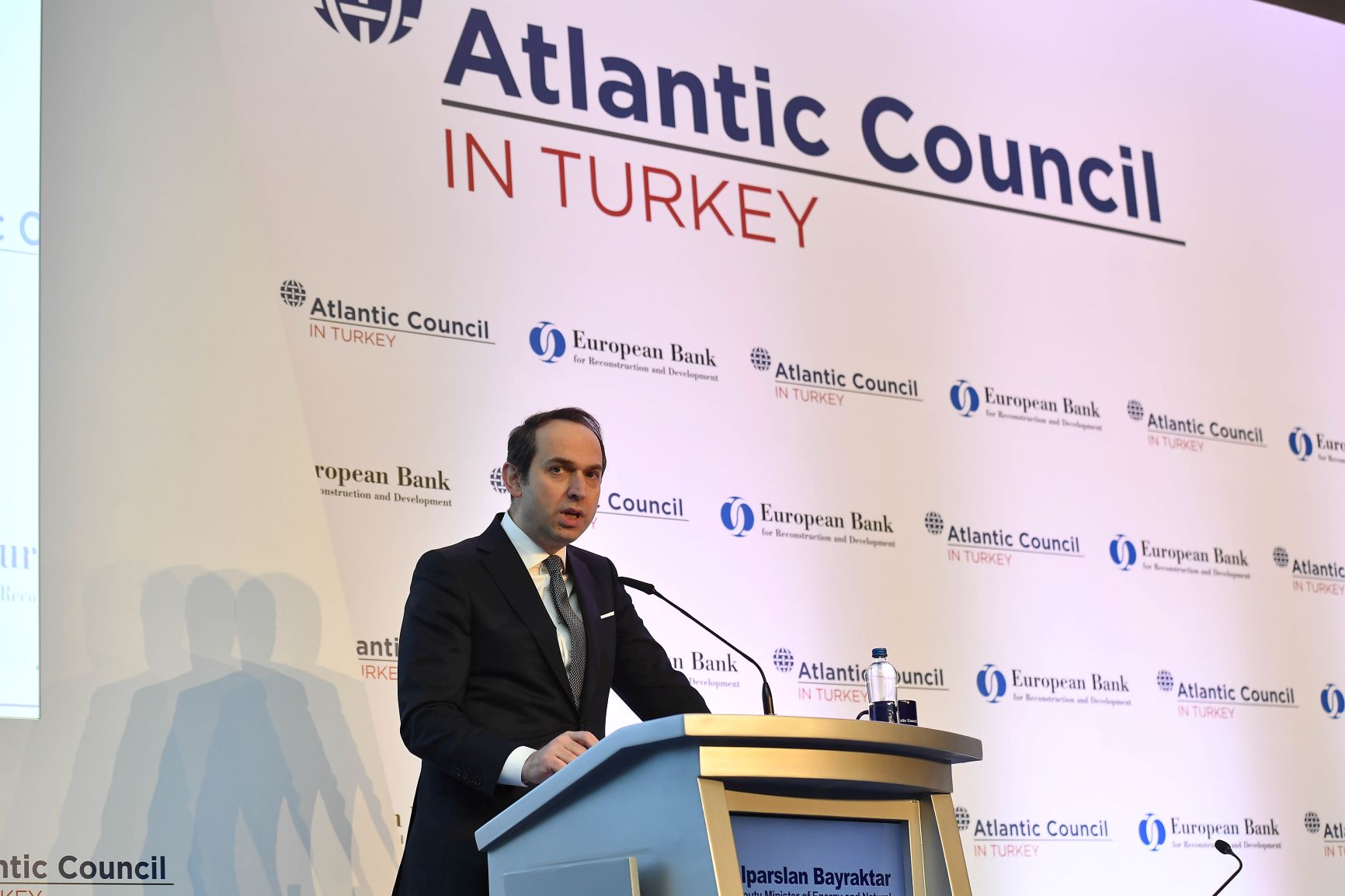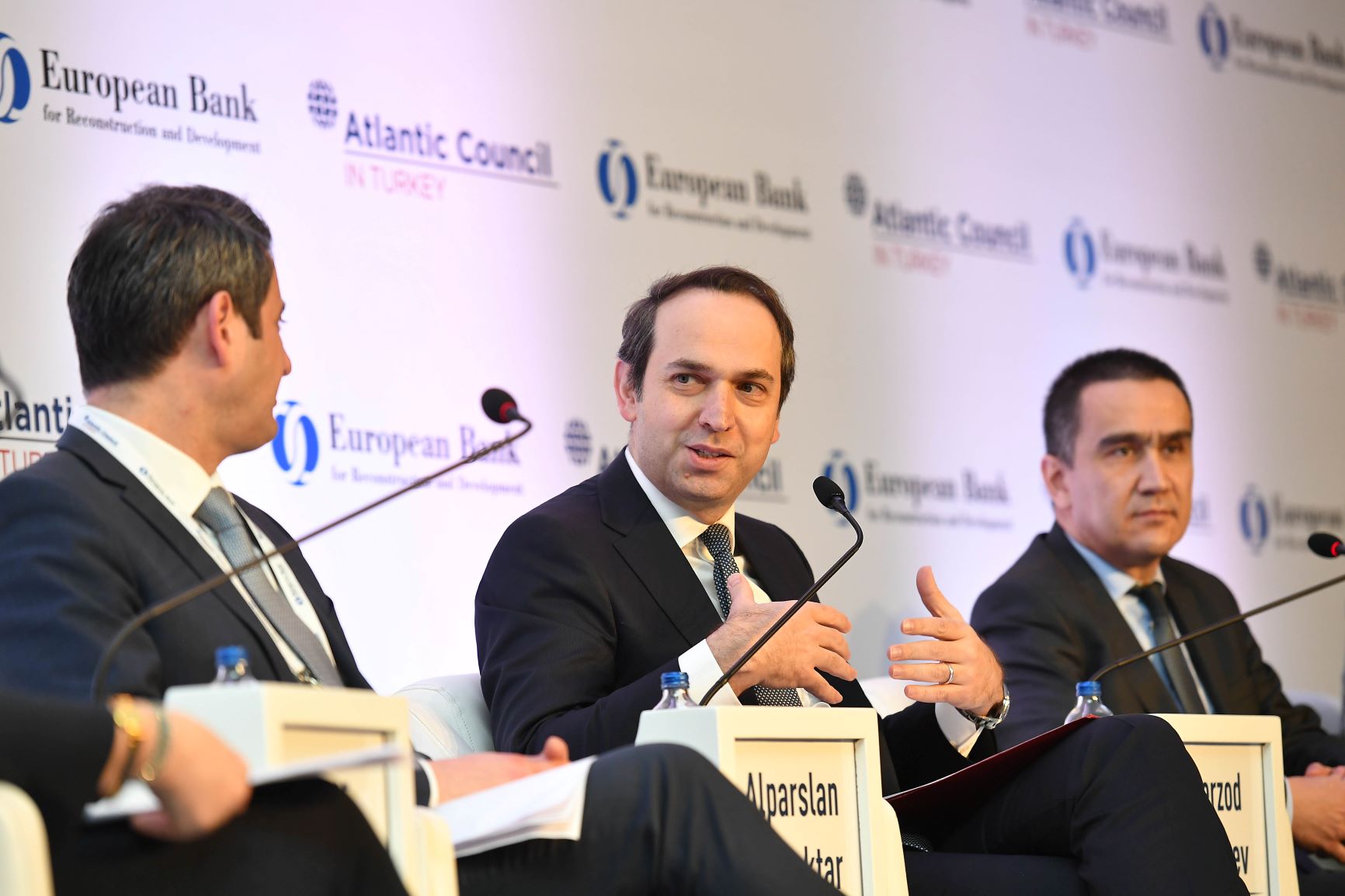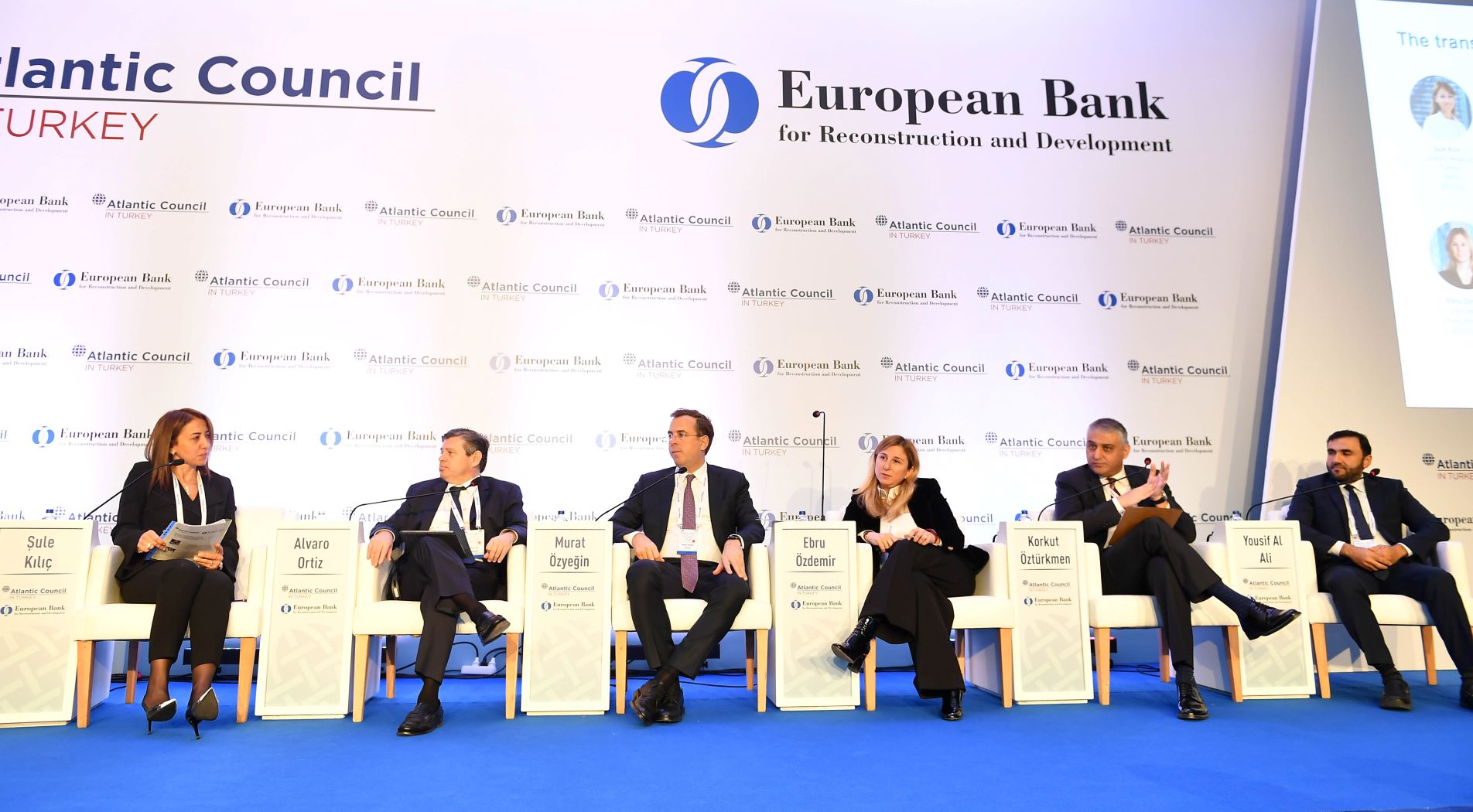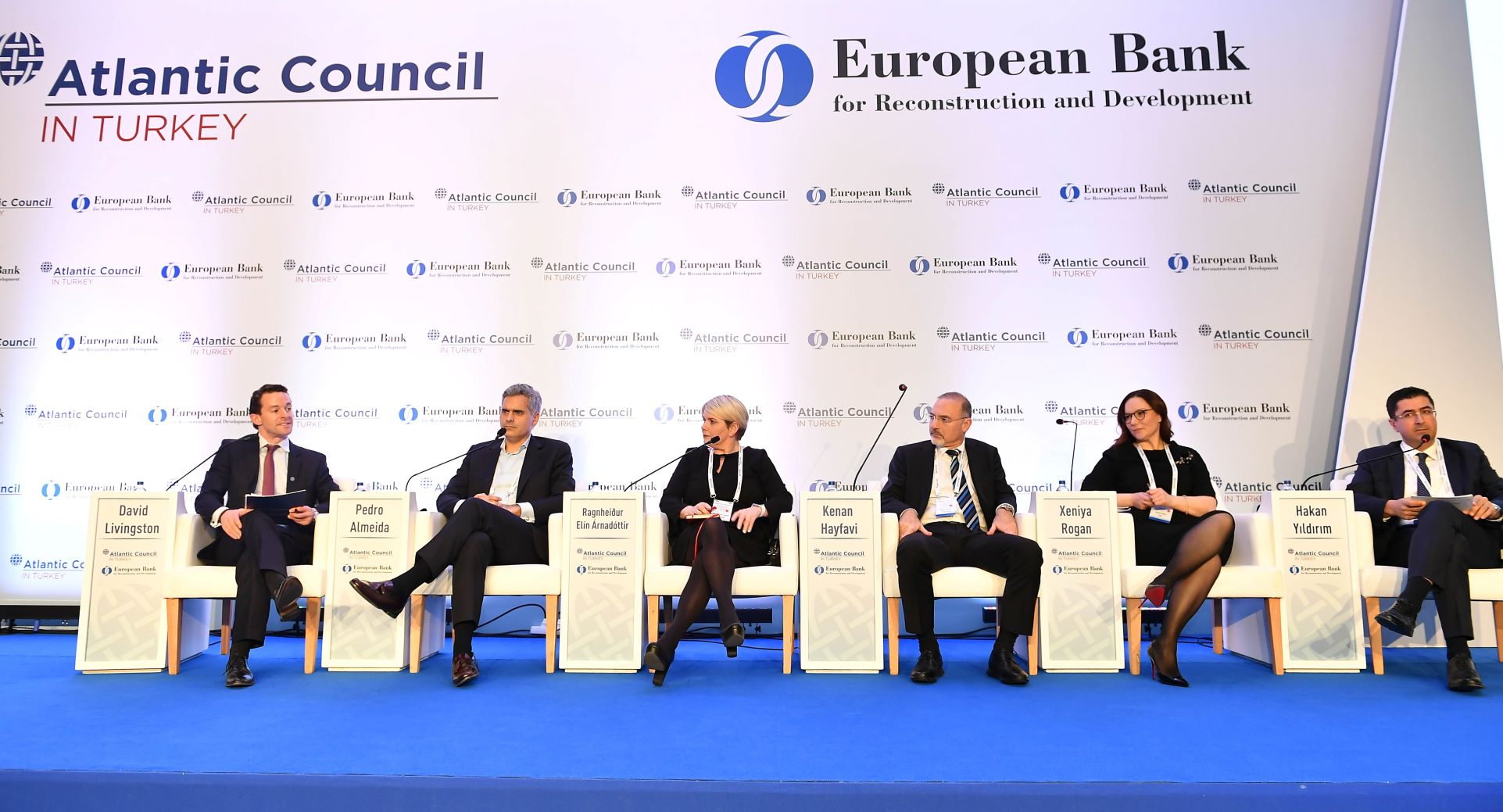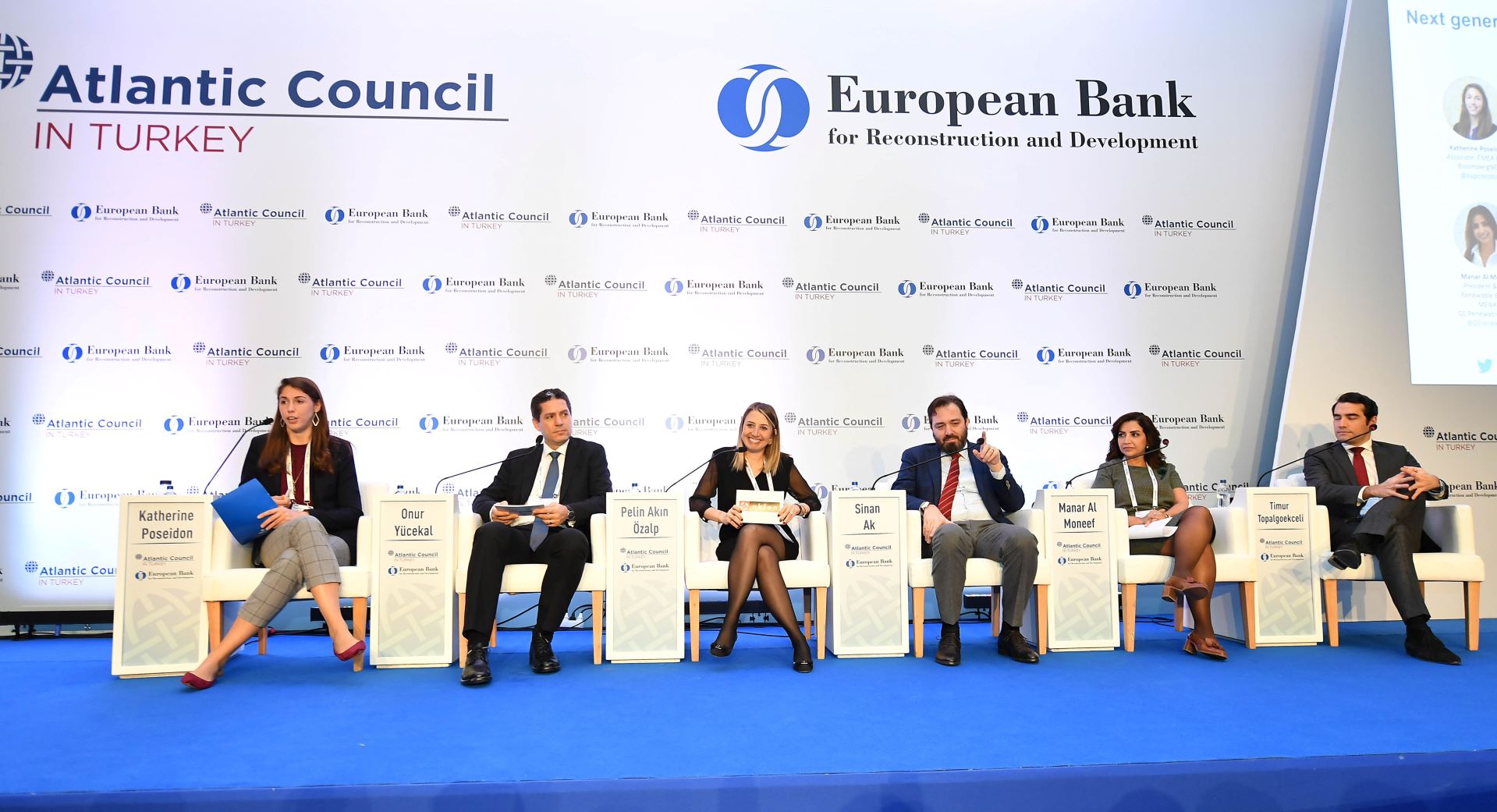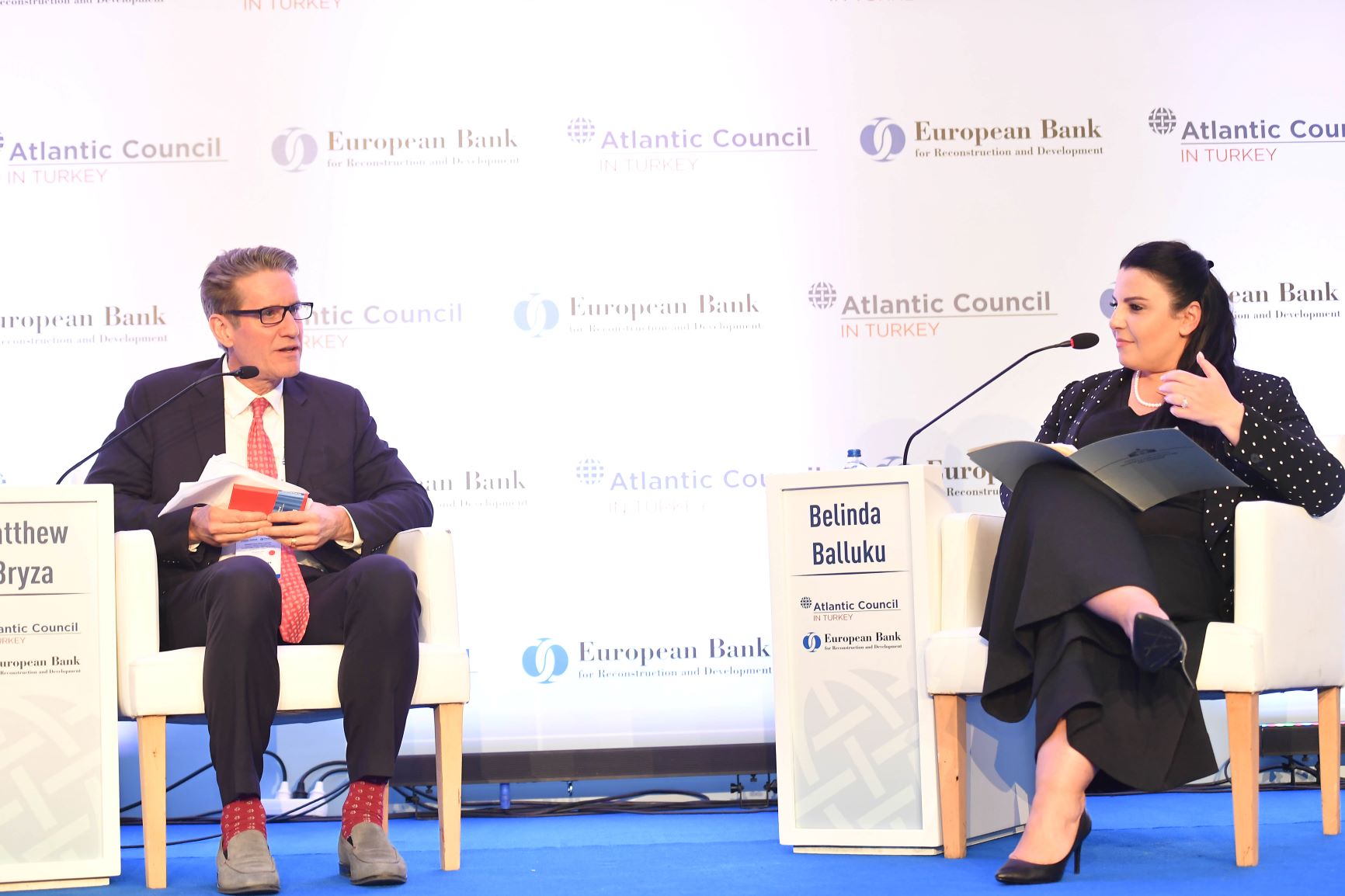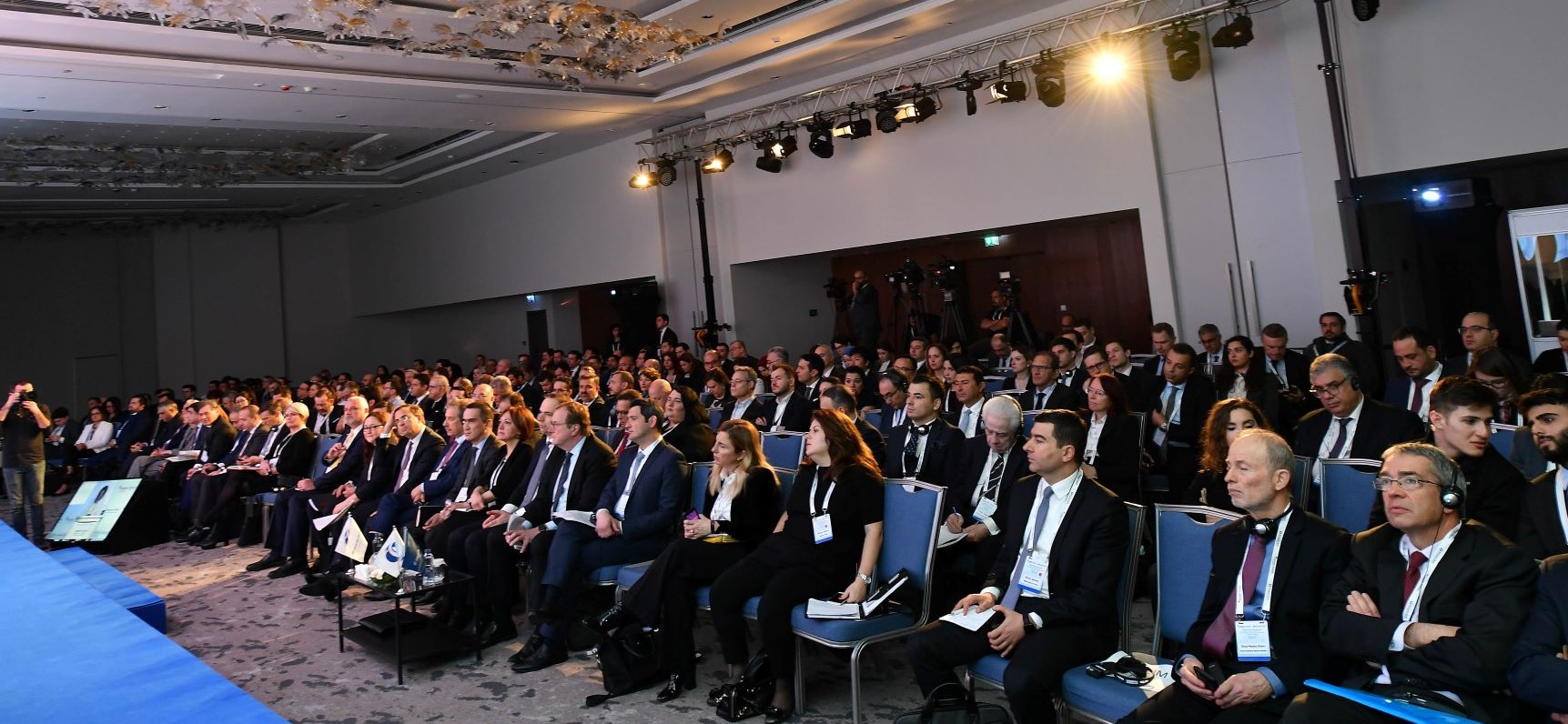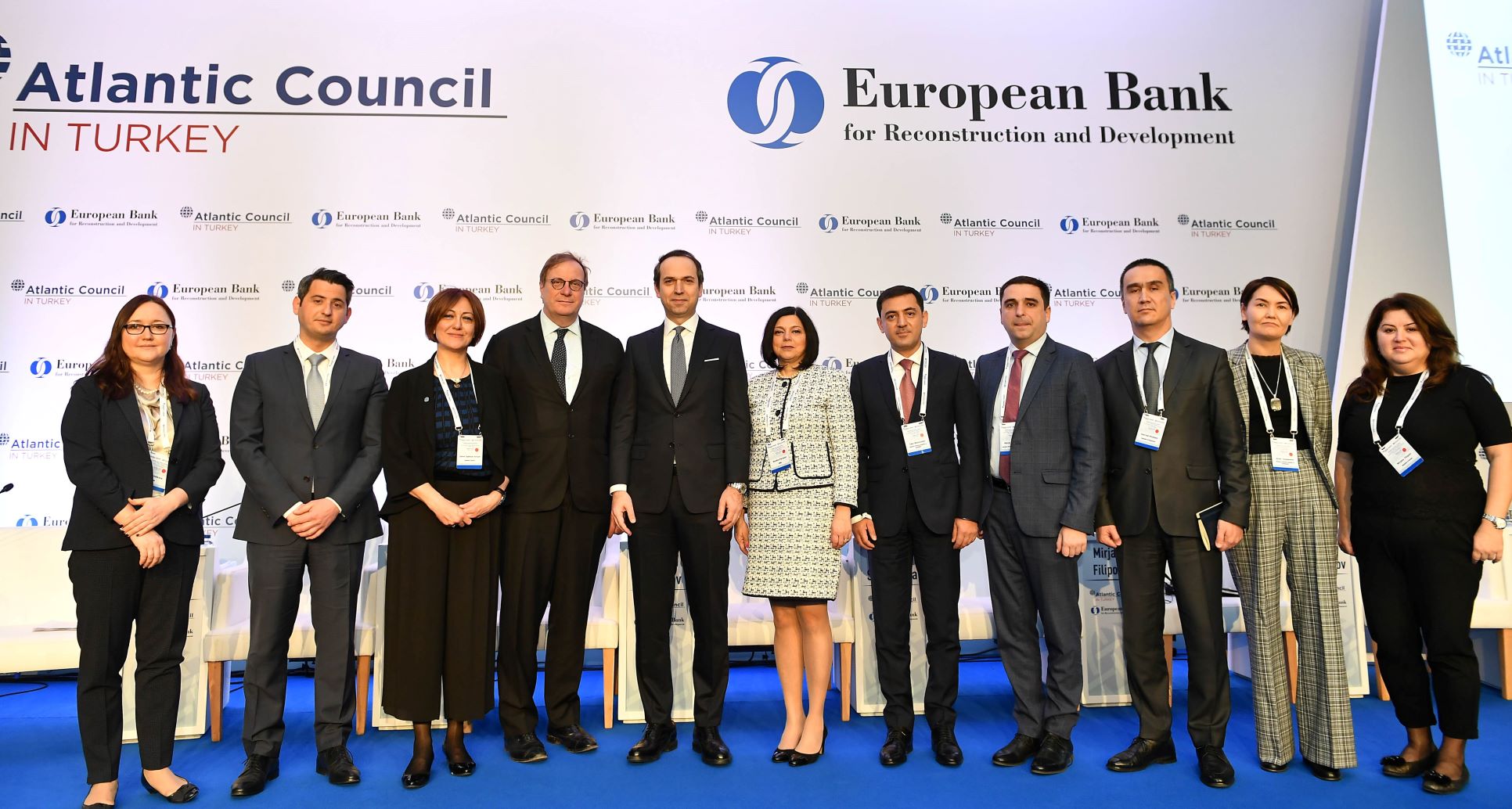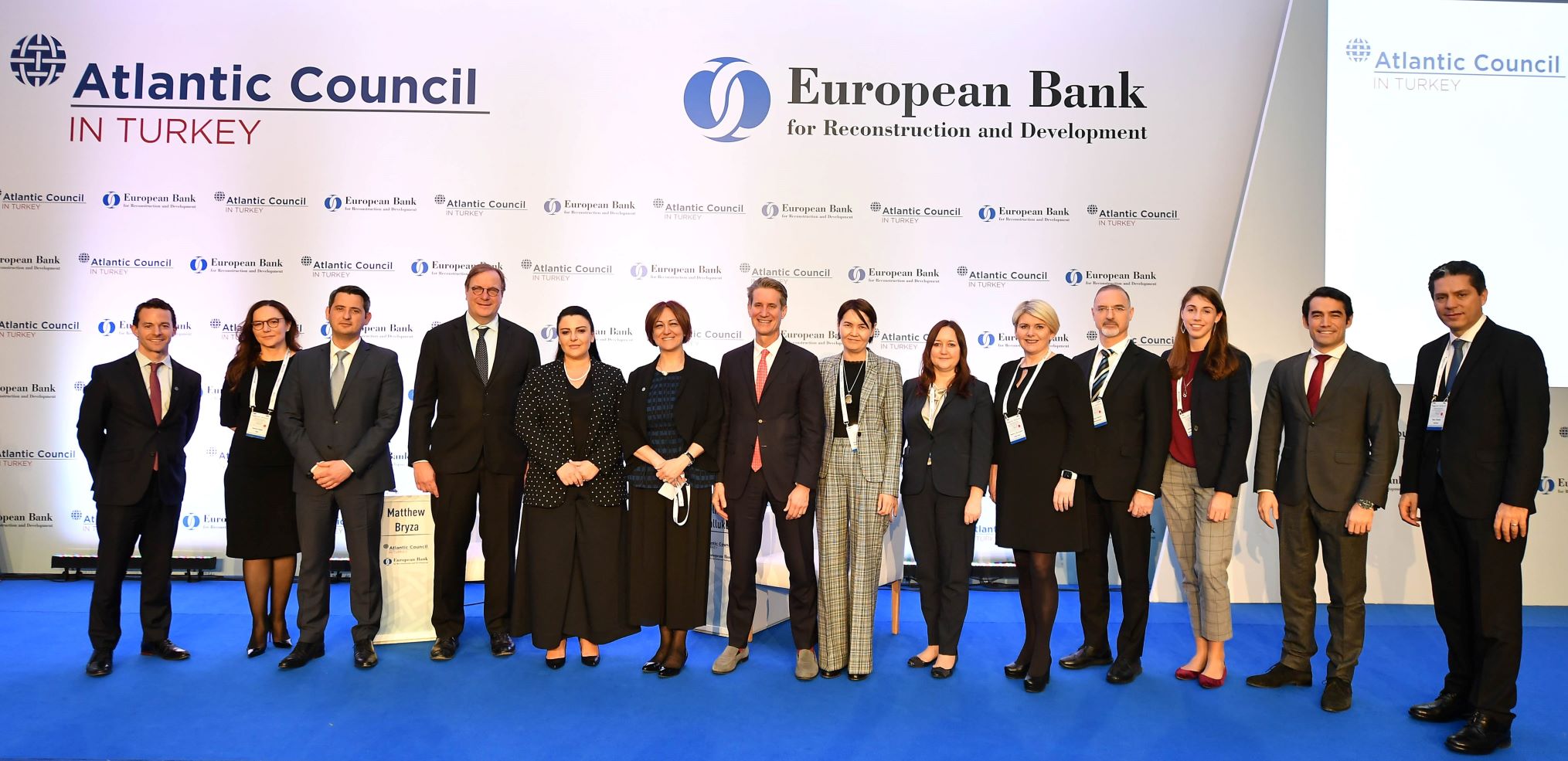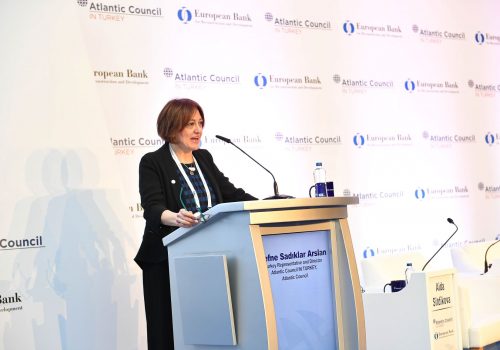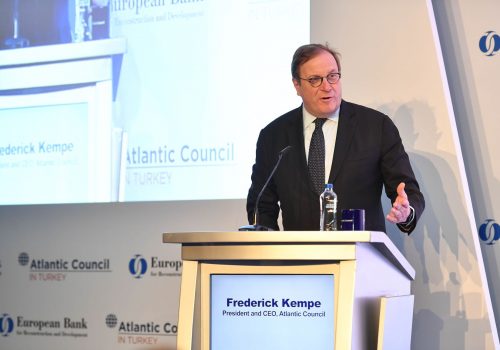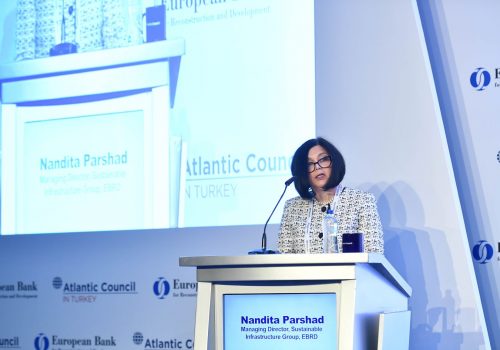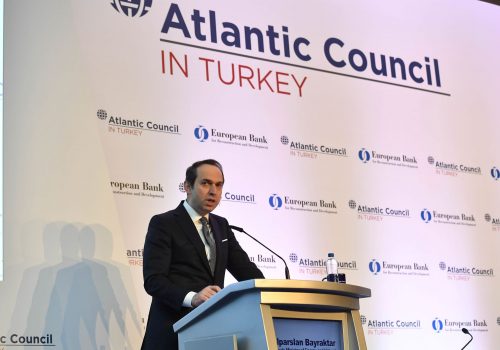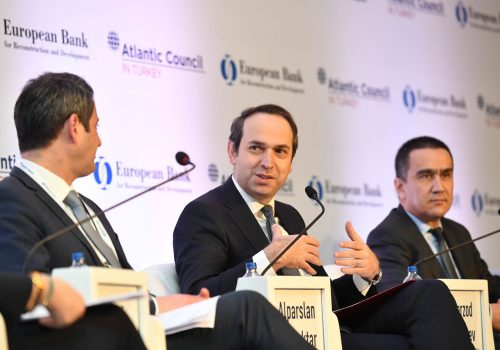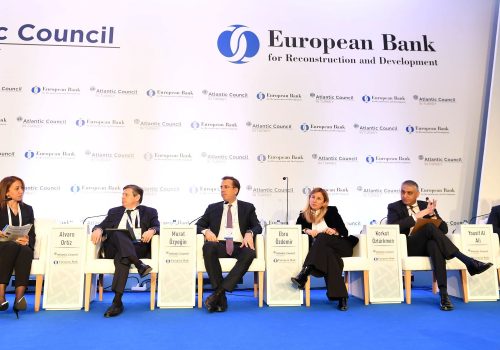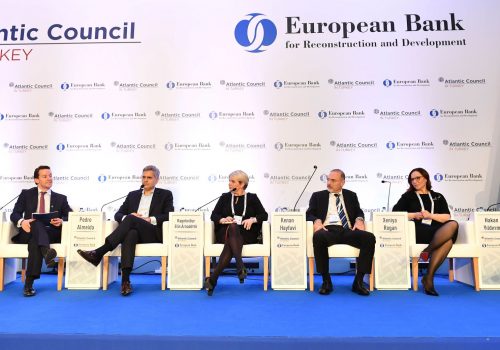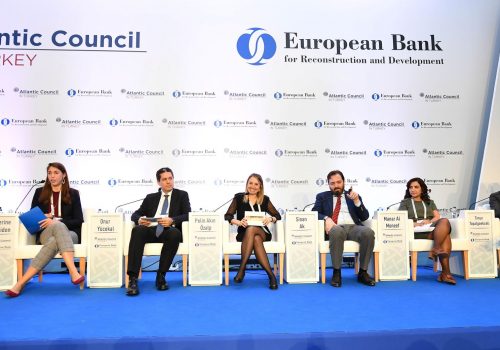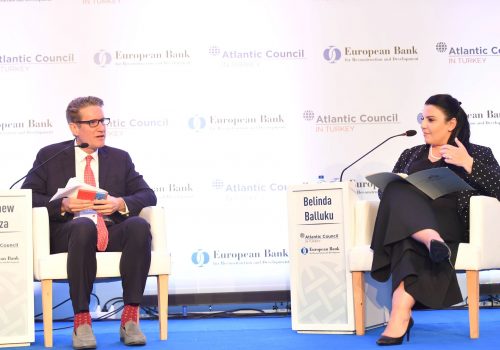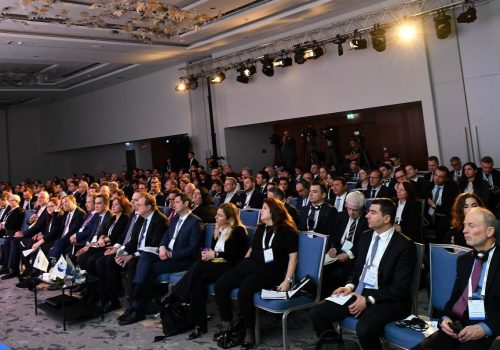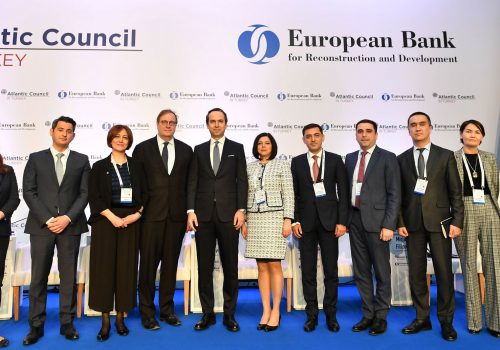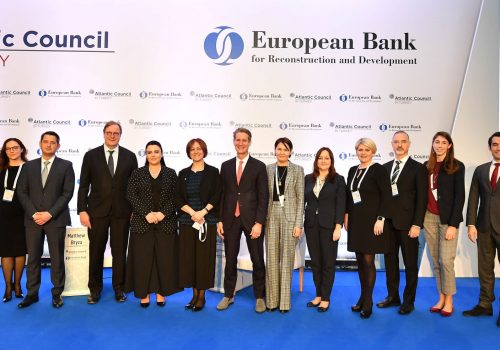On February 13, 2020, the Atlantic Council IN TURKEY and European Bank for Reconstruction and Development hosted a conference on Renewable Energy Outlook to discuss the latest regional energy developments in Turkey and countries in Central Asia, Caucasus, and the Western Balkans, addressing current policy/regulatory trends, the investment environment, the grid integration of renewables, and the outlook for further technological innovation.
The conference was the second in a series that we aim to turn into the region’s premier gathering for high-level policymakers and executives to discuss the latest developments in renewable energy. Ministers, industry executives, and policy and technology experts from across the region have been invited to participate in this timely event.
Conference videos
Media coverage
See below coverage of the event from our conference media partner, Anadolu Agency. To see the full articles, click read more.
Conference announcement
Coverage of the opening speeches
Interview with Atlantic Council Turkey Representative and Atlantic Council IN TURKEY Director Defne Sadıklar Arslan
Interview with GE Renewables MENAT CEO Manar Al-Moneef
Interview with BBVA Research Head Of Big Data Analysis and Chief Economist Turkey Alvaro Ortiz
Interview with Atlantic Council Global Energy Center Deputy Director for Climate and Advanced Energy David Livingston
Other media coverage
English
Turkish
- Yenilenebilir Enerji Görünümü Konferansı 13 Şubat’ta İstanbul’da yapılacak
- ‘ABD ile 100 milyar dolarlık ticaret hedefinde enerjinin rolü artacak’
- Uluslararası yatırımcılar, yenilenebilir enerji fırsatları için İstanbul’a geliyor
- Yenilenebilir Enerji Görünümü Konferansı başlıyor
- Yenilenebilir enerjideki ‘1 puanlık artışla ekonomiye 100 milyon dolarlık katkı’
- “Yenilenebilir Enerji Görünümü Konferansı”
- Atlantik Konseyi Başkanı Kempe: Doğal afetler 5 yıl içerisinde 1 trilyon dolarlık maliyet getirdi
- Türkiye ve Fas yenilenebilir enerjide ‘öncü’
- BBVA Araştırma’nın Türkiye Başekonomisti Ortiz: Koronavirüsün petrol piyasasındaki etkisi kısa vadeli olacak
- Türkiye elektrikli araç bataryası üretiminde Çinli firmanın radarında
- Temiz enerjide küresel merkez Türkiye
Spanish
Photos
Agenda
Welcoming remarks
Defne Sadıklar Arslan, Turkey Representative and Director, Atlantic Council IN TURKEY, Atlantic Council
Nandita Parshad, Managing Director, Sustainable Infrastructure Group, EBRD
Frederick Kempe, President and CEO, Atlantic Council
Alparslan Bayraktar, Deputy Minister, Ministry of Energy and Natural Resources, Republic of Turkey
Regional renewable energy outlook
Countries across the region have ambitions to scale-up the share of renewables in their energy mixes, and have announced targets and support schemes that are at various stages of maturity. Moreover, many of the countries are undertaking reforms in their electricity sectors, and are considering the role that regional cooperation and grid enlargement might play in achieving their policy goals. What are the main challenges to realizing the ambitions of increasing the share of renewables? What has been the experience of maturing renewable energy support schemes? And what might these goals mean for greater regional cooperation and coordination in the decade ahead?
Moderator: Aida Sitdikova, Director, Energy Eurasia, Sustainable Infrastructure Group, EBRD
Panelists:
Alparslan Bayraktar, Deputy Minister, Ministry of Energy and Natural Resources, Republic of Turkey
Giorgi Chikovani, CEO, Georgian Energy Development Fund
Mirjana Filipović, State Secretary, Ministry of Energy and Mining, Republic of Serbia
Sherzod Khodjaev, Deputy Minister, Ministry of Energy, Republic of Uzbekistan
Zaur Mammadov, Chief of Staff, Ministry of Energy, Republic of Azerbaijan
H.E. Naser Nuredini, Minister of Environmental and Physical Planning, Republic of North Macedonia
Ainur Sospanova, Head of Renewables, Ministry of Energy, Republic of Kazakhstan
The transition toward a subsidy-free world
Administratively determined feed-in tariffs (FiTs) have been used in many countries, for many years, to provide direct support to renewable energy projects. However, public budget constraints and rapid renewable cost declines are prompting a re-think in many countries. As renewable energy markets mature, a growing number of countries are looking to reduce subsidy costs by spurring competition. As competitive auctions and other new approaches spread, what are the challenges and opportunities for financing renewables in this period of transition?
Moderator: Şule Kılıç, Deputy Head of Turkey, EBRD
Panelists:
Yousif Al Ali, Executive Director, Masdar Clean Energy
Joachim Goldbeck, President, Goldbeck Solar
Alvaro Ortiz, Chief Economist for China, Turkey and Big Data, BBVA Research
Ebru Özdemir, Chairperson, Limak Investments
Korkut Öztürkmen, Head of Energy Group, IC Holding
Murat Özyeğin, Chairman of the Board and the Executive Committee, Fiba Group
Integration of intermittent renewable energy sources
Solar and wind-based electricity generation is inherently characterized by both variability and some uncertainty due to its dependence on weather conditions. In the context of increasing penetration of renewable energy, these characteristics pose challenges to most power systems. What does this intermittency mean for the costs of grid integration, and what steps can be taken to minimize these costs and enhance grid management going forward?
Moderator: David Livingston, Deputy Director for Climate and Advanced
Energy, Global Energy Center, Atlantic Council
Panelists:
Pedro Almeida, Head of Global Business Development, EDPR
Ragnheiður Elín Árnadóttir, Nonresident Senior Fellow, Global Energy Center, Atlantic Council
Kenan Hayfavi, Managing Director, MNG Renewables
Xeniya Rogan, Principal Banker, Energy Eurasia, EBRD
Hakan Yıldırım, President, Turkish Wind Energy Association
The next generation of renewables and role of new technologies
Increasing penetration of intermittent renewables on the grid poses new challenges to power system stability, but also an opportunity for new technologies, policies, and market models to emerge. From firming the generation profile of renewables with energy storage, to managing renewables on the grid with new blockchain-based solutions, to policies and business models that support more dynamic and transactive energy power markets, there are a number of promising developments underway. What are the solutions, both in terms of the “hardware” and “software” of the energy sector, that can re-shape the energy paradigm in coming years?
Moderator: Katherine Poseidon, Associate, EMEA Policy, Bloomberg NEF
Panelists:
Sinan Ak, CEO, Zorlu Energy
Pelin Akın Özalp, Board Member, Akfen Holding
Manar Al Moneef, President & CEO, Renewable Energy, MENAT, GE Renewable Energy
Timur Topalgoekceli, Head, Hello Tomorrow Turkey
Onur Yücekal, CEO, Çalık Enerji
Discussion with H.E. Belinda Balluku, Minister of Infrastructure and Energy, Republic of Albania
Moderator: Matthew Bryza, Nonresident Senior Fellow, Eurasia Center and Global Energy Center, Atlantic Council
Quotes

“Turkey and other countries in the region are rightfully embracing the opportunities afforded by renewable energy. As these energy sources continue to drop in price and grow in grid penetration, it is important that conferences such as this gather decisionmakers to chart a course that will maximize the energy diversification, resilience, and security for the region.”
Ambassador Richard Morningstar, Founding Chairman, Global Energy Center, Atlantic Council
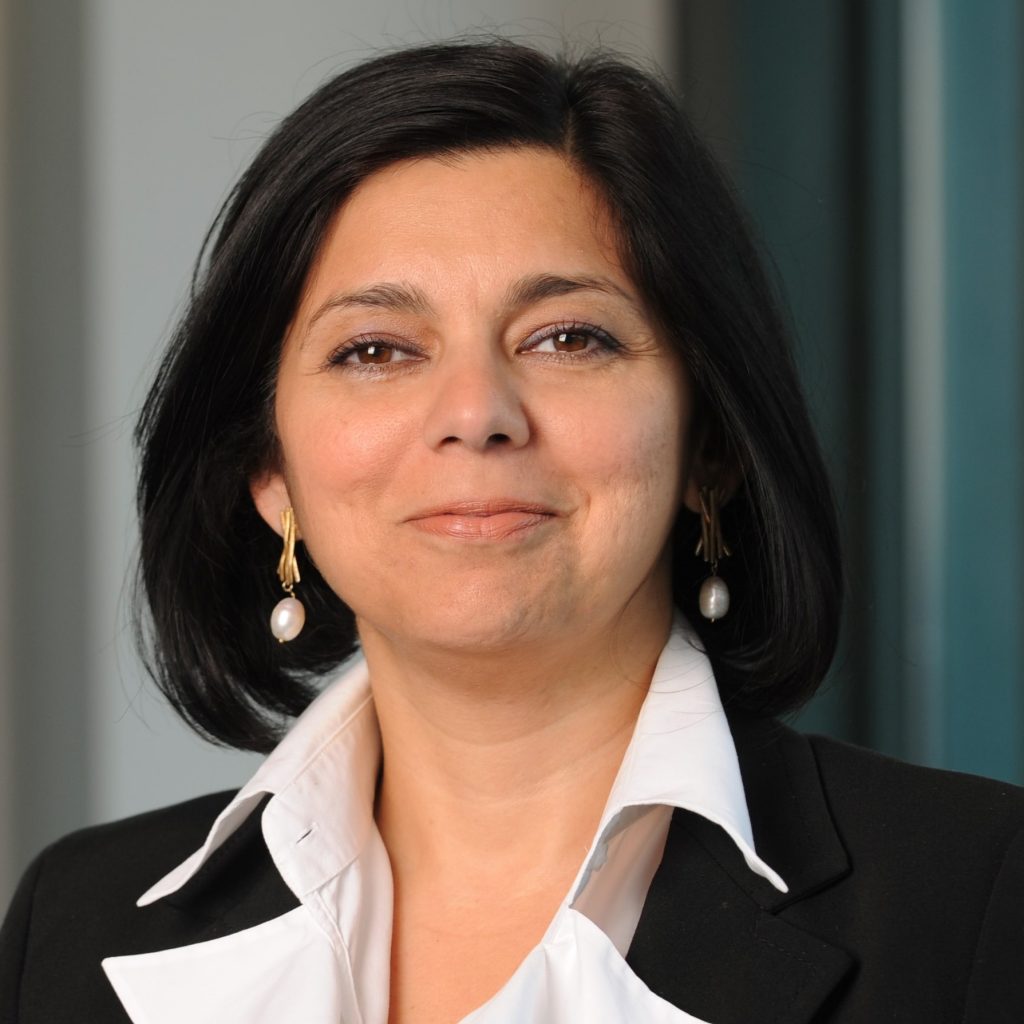
“Meeting the challenge of the climate emergency is the most urgent task of our time. The role of renewable energy is critical in this regard – the world needs DECARBONISED energy to continue to grow and renewables will have to deliver it. This important conference will allow countries in the region to share their experience in increasing penetration of renewables in their energy mix. It will also allow us to discuss ways to attract investment in the transition towards a clean energy future. I look forward to attending it.”
Nandita Parshad, Managing Director, Sustainable Infrastructure Group, EBRD

“Environmental, energy security, and, more recently, economic imperatives continue to drive the growth of renewable energy across the region and the world. This conference will be a great opportunity to take stock of the current state of renewables and discuss the ongoing technological and regulatory developments in the sector.”
Defne Sadıklar-Arslan, Director, Atlantic Council IN TURKEY & Turkey Representative, Atlantic Council

“The governments, private sector, and international development institutions can be perfect partners to help transition economies towards a low carbon future. This conference creates the platform to drive this partnership forward to build a sustainable energy sector for the region and beyond.”
Aida Sitdikova, Director, Energy Eurasia, Sustainable Infrastructure Group, EBRD

“The growing competitiveness of renewables in Turkey and the broader Eurasian region is poised to re-shape energy trade, regulatory models, and even geopolitical relations in the years to come. It is an opportune time to rethink how recent market developments will re-shape the policy and infrastructure landscape across Eurasia. With this conference, the Atlantic Council and EBRD are at the forefront of exploring new architectures for energy policy and markets in response to these consequential upheavals.”
David Livingston, Deputy Director for Climate & Advanced Energy, Atlantic Council
Hosted by

About the hosts
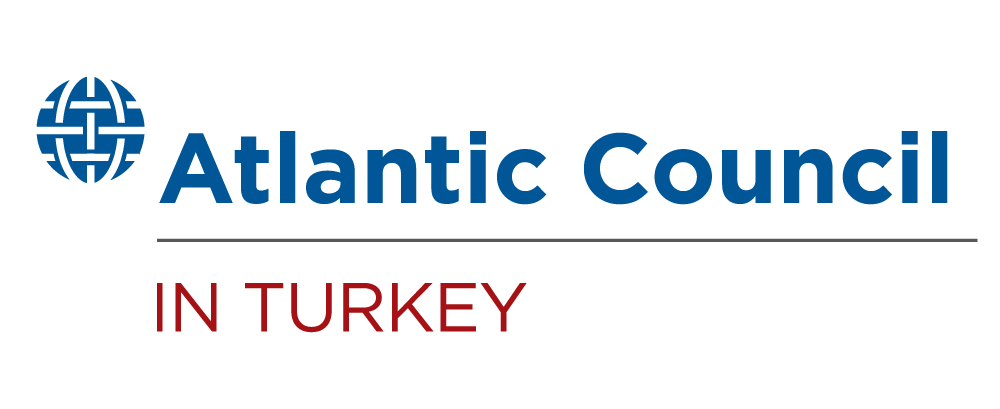
The Atlantic Council is a leading Washington D.C. based think-tank focused on international relations. The Atlantic Council’s Turkey Program, Atlantic Council IN TURKEY, is committed to promoting dialogue and transatlantic engagement with Turkey and wider region span from Europe through the Black and Caspian Seas to the Middle East and Central Asia and through the Mediterranean Sea to Africa. The Atlantic Council has launched its Atlantic Council IN TURKEY program in 2018 aiming at leveraging economic and business dialogue to enhance regional cooperation.

The European Bank for Reconstruction and Development is an international financial institution founded in 1991 to support transition towards open market-oriented economies. Renewable energy is a key integral part of recently adopted EBRD’s Energy Sector Strategy, which sets the strategic directions of promoting decarbonised economies that are highly efficient, electrified by mainly renewable energy sources. The EBRD has been a major financier of climate change mitigation and adaptation in its countries of operation and, since 2006, the Bank has invested EUR 34 billion in over 1900 sustainable projects resulting in 102 million tonnes of CO2 emissions reductions across EBRD countries of operation. In 2019 alone, when its green finance hit a record €4.6 billion or 46 per cent of total business volume, the Bank financed over 2.2 GW of new renewable power capacity.
